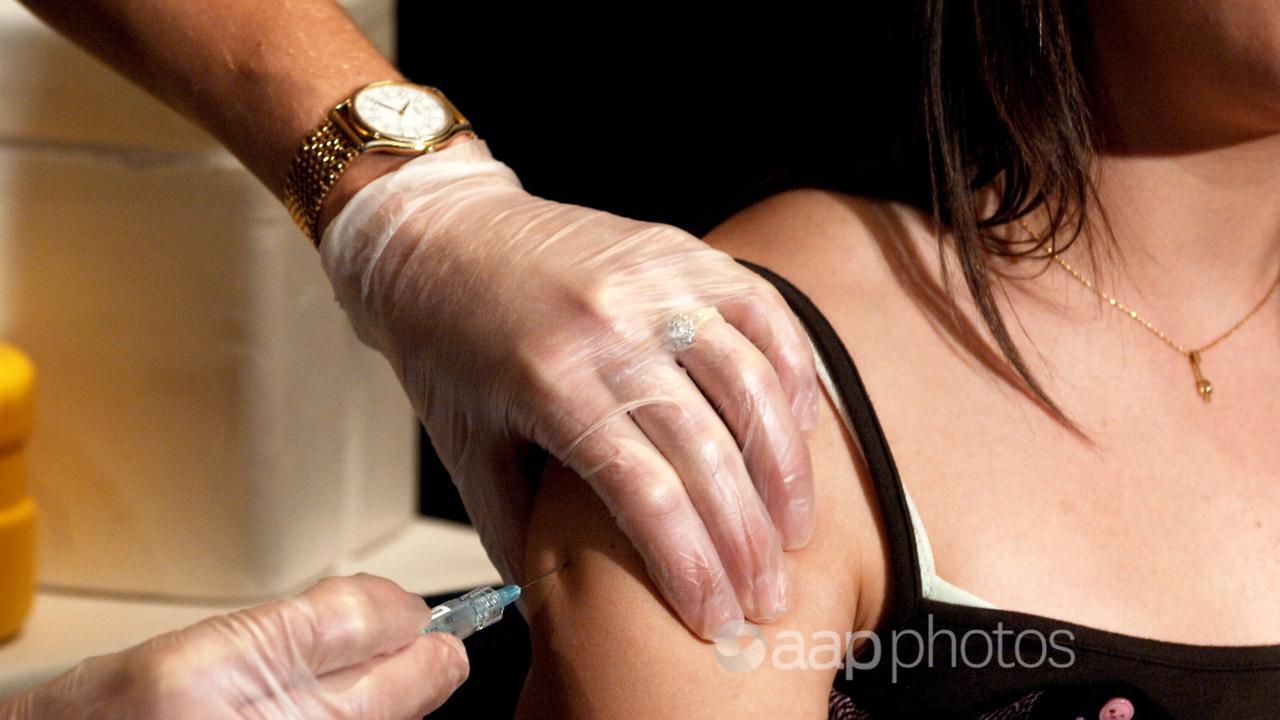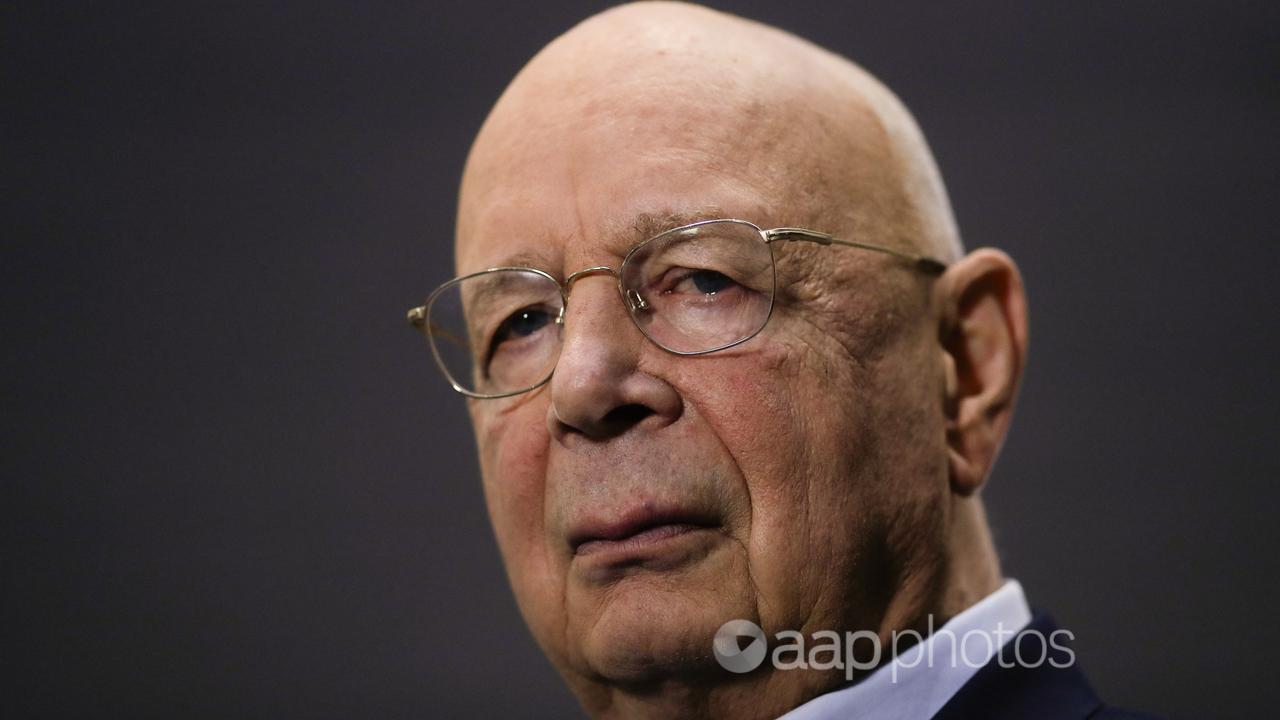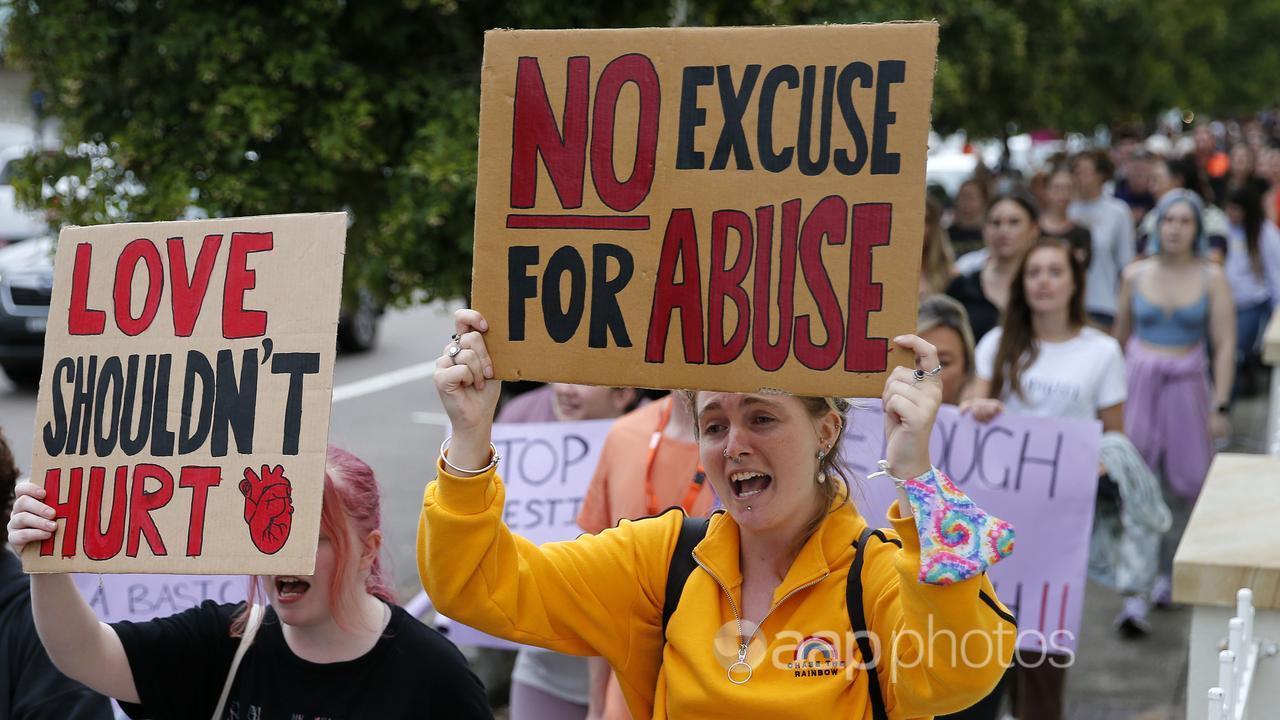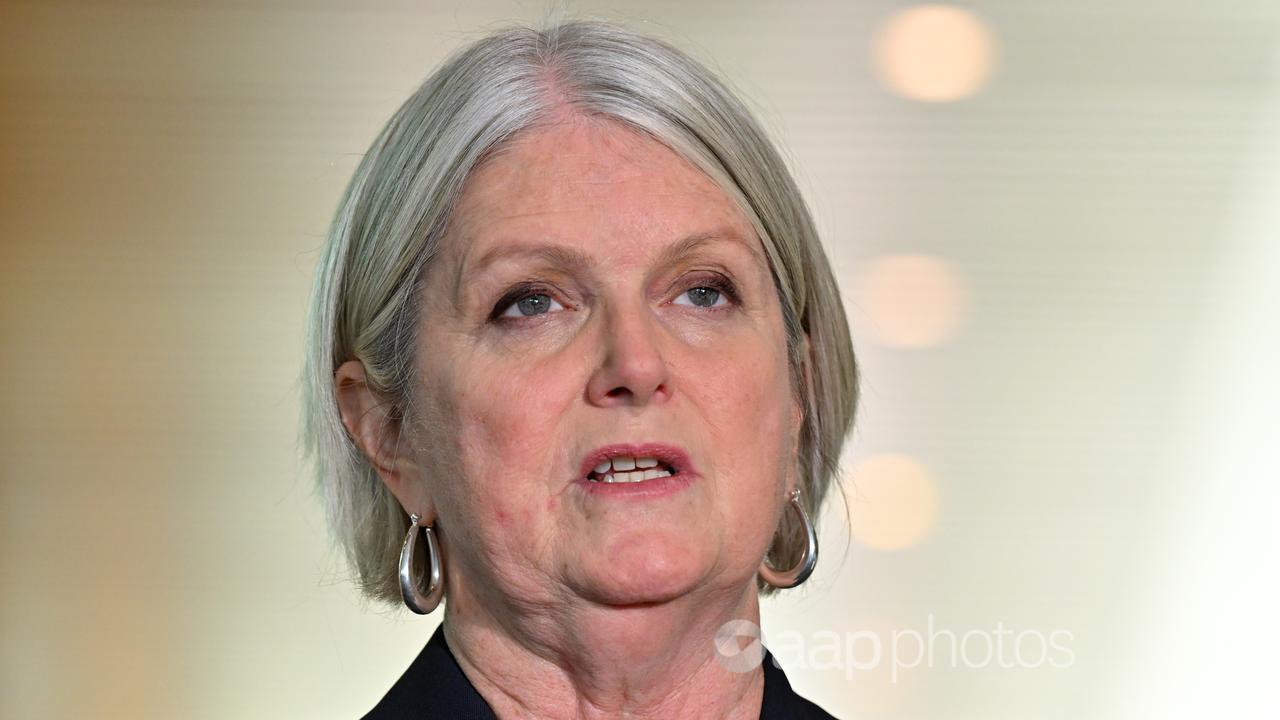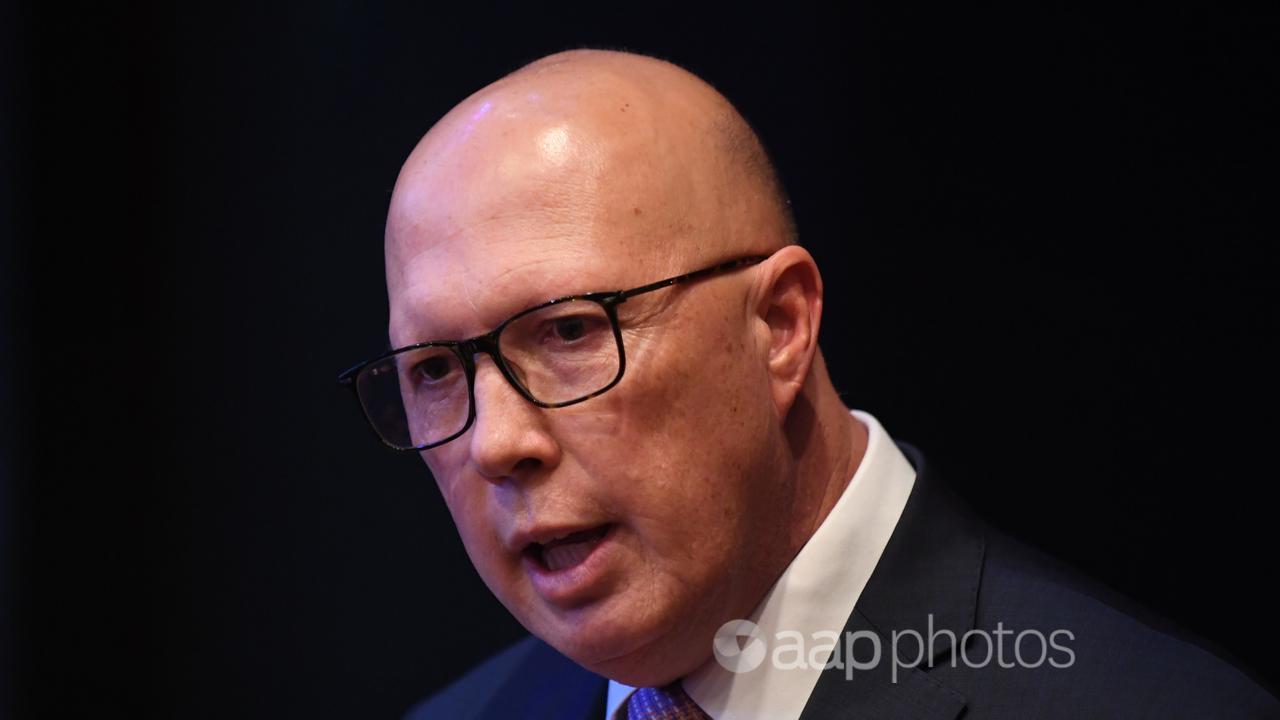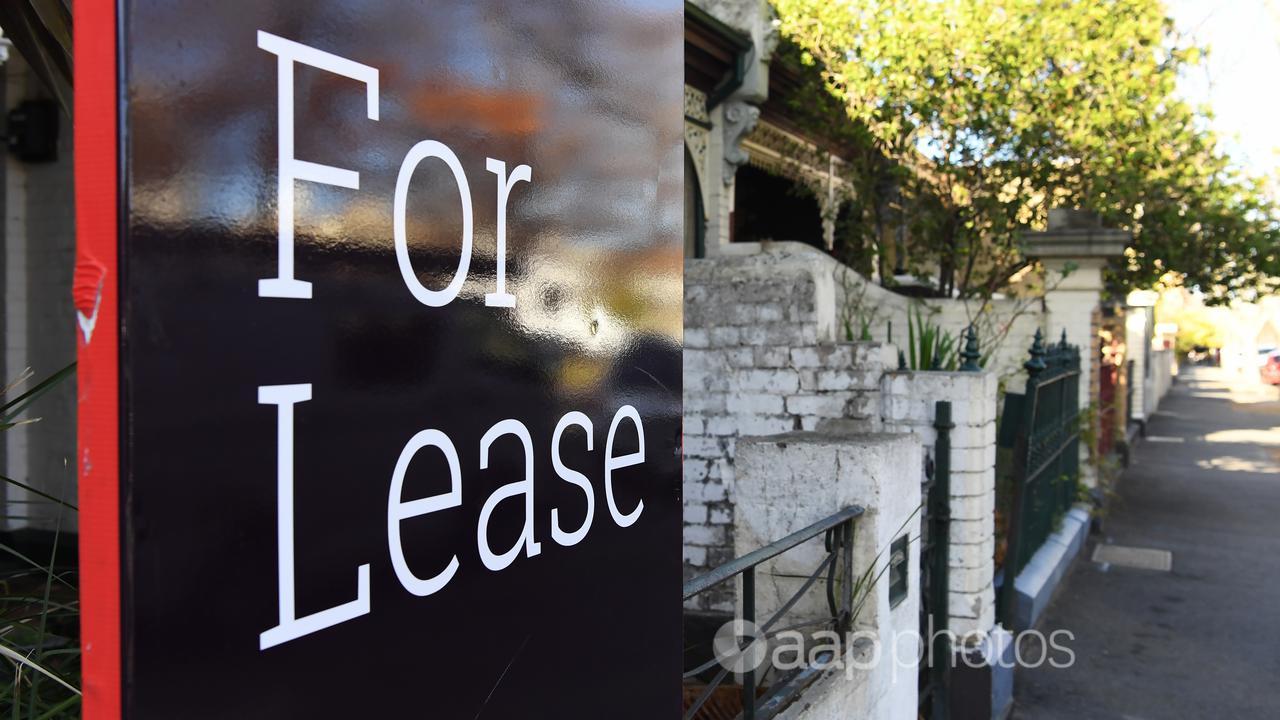It has been claimed a routine anti-cancer vaccine called Gardasil can damage the ovaries and that it has been withdrawn from use in the United States.
The claim is false. Experts told AAP FactCheck there is no solid evidence of a link between the vaccine and ovary damage. Additionally, it remains available and recommended for children in the US.
The claim was made in an interview filmed by the vaccine-sceptic group Cafe Locked Out. AAP FactCheck has debunked other false claims promoted by the group here and here.
In the video, (screenshot here) a woman says: “It can cause a lot of damage to your ovaries.
“…It causes a lot of different problems. There’s a lot of information out there. In the United States they stopped giving out Gardasil 9 because they’ve been sued for it” (video mark 0:38).
Gardasil is a vaccine that helps prevent human papillomavirus (HPV), a common viral infection spread through skin-to-skin contact, mostly during sexual activity.
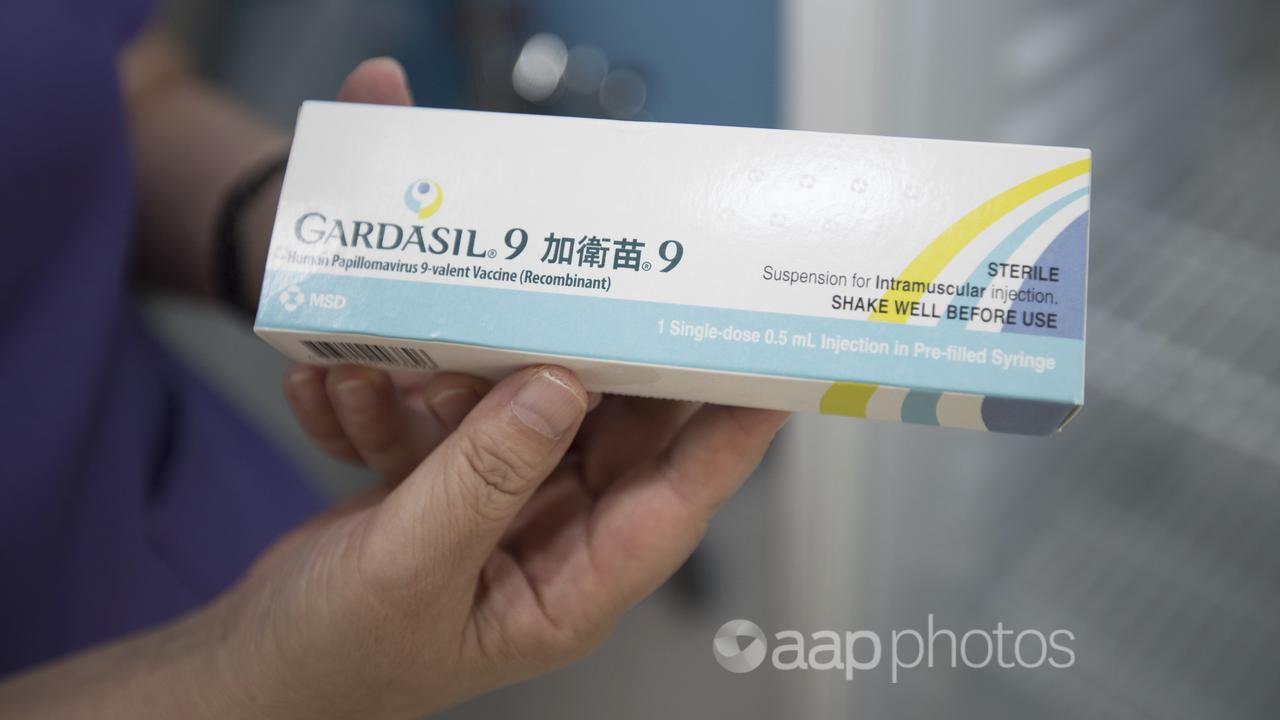
HPV can cause serious health problems including genital warts, cervical cancer and other cancers of the genitals, head, neck and throat.
The Gardasil vaccine was introduced in Australia in 2006, with government-funded vaccines offered the following year to all females aged 12-26.
An improved version of the vaccine called Gardasil 9 was made available in Australia in January 2018, which better targeted cancer-causing HPV strains and prevented more cervical cancers than the original jab.
Worldwide, Gardasil 9 is estimated to protect against the strains of HPV responsible for around 90 per cent of cervical cancer cases. It is offered to all 12 and 13-year-olds as part of Australia’s National Immunisation Program.
The claim that the vaccine damages ovaries is largely based on a long-standing myth that it is associated with a rare but serious condition called premature ovarian failure (POF), also known as premature ovarian insufficiency, primary ovarian insufficiency or primary ovarian failure.
The condition refers to the cessation of menstrual cycles prior to the age of 40, usually resulting in infertility. It develops in around one in 100 women aged under 40 years and around one in 1000 women under 30.
Professor Nigel Crawford, a vaccinologist at Murdoch Children’s Research Institute and head of immunisation services at The Royal Children’s Hospital, told AAP FactCheck there is no solid evidence to support the claim that the vaccine causes damage to the ovaries.
In particular, he said there is no evidence of a link between the vaccine and POF.
He suggested anecdotal cases of ovarian failure following HPV vaccination may be incidental and unrelated to the jab.
“The timing of the HPV vaccine around puberty (12-13 years) has led to some of these concerns (about POF) being raised,” he said in an email.
Cancer Council Australia has similarly pointed out that, given hundreds of millions of doses of Gardasil vaccines have been administered worldwide, it should be expected that some health issues occur soon after vaccination “by chance alone and unrelated to vaccination”.
Prof Crawford pointed AAP FactCheck to this 2021 Danish cohort study that used national health data to compare POF rates between 505,829 HPV-vaccinated and 490,471 HPV-unvaccinated females aged between 11 and 34 years.
The researchers found 144 of the 996,300 women and girls were diagnosed with POF but the condition affected vaccinated and unvaccinated women at similar rates.
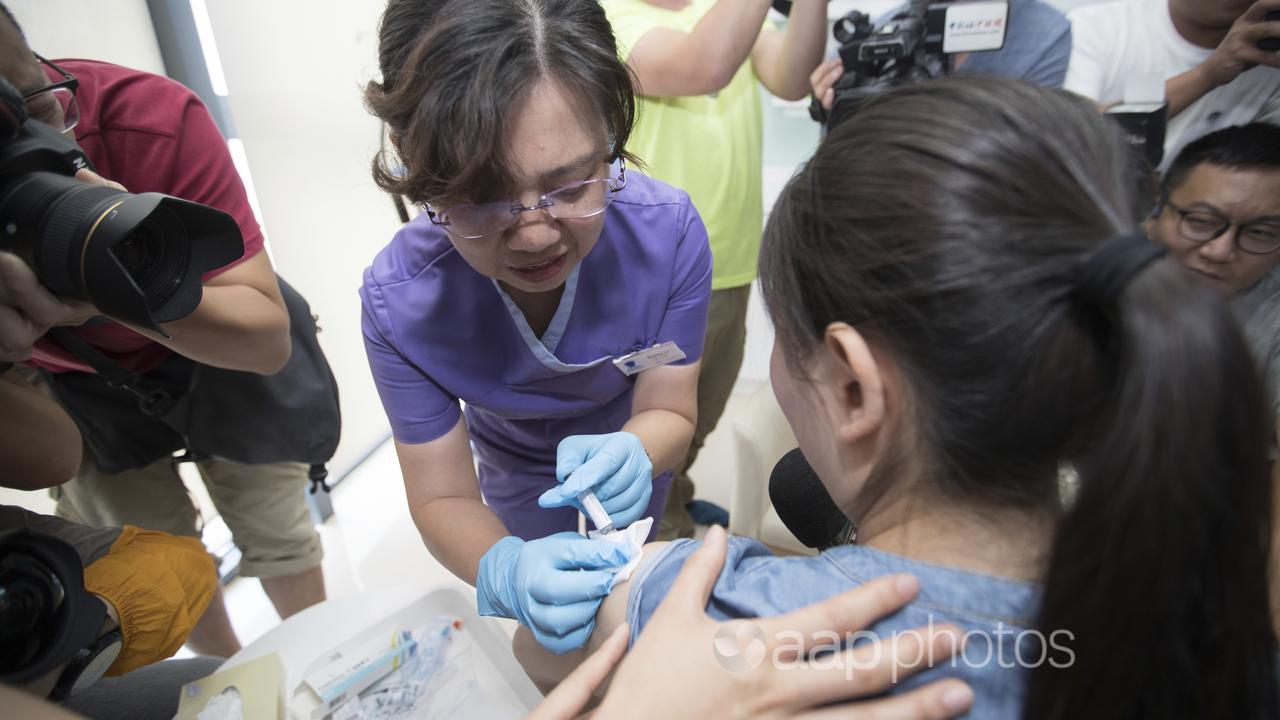
At age 19, the cumulative incidence of POF was 0.011 per cent for both the vaccinated and unvaccinated cohorts. At age 34 years, 0.044 per cent of vaccinated individuals had been diagnosed with POF compared to 0.047 per cent of unvaccinated individuals in the study.
This 2018 US cohort study of almost 200,000 girls and women and this 2020 US study of more than 1100 women aged 18 to 33 years similarly found no evidence of increased risk among HPV-vaccinated individuals.
Dr Diane Harper, a medical doctor and a University of Louisville professor who has written more than 140 peer-reviewed publications related to HPV, also told AAP FactCheck that claims of a link between Gardasil and ovarian failure were not backed by any solid data.
In the Facebook video, the woman also draws a link between Gardasil and seizures, which Prof Crawford also said is unsupported.
“There have also been reports of exacerbation in seizures, in those that have an underlying seizure disorder,” Prof Crawford told AAP FactCheck.
“It can be difficult to determine the role of the vaccine in these cases of exacerbation … but as per above, the vaccine is not the cause of the underlying epilepsy.”
The claim made in the video that Gardasil vaccines have been withdrawn in the US is also false.
HPV vaccines are recommended for 11 and 12-year-olds as part of America’s childhood immunisation schedule. The US Food and Drug Administration has licensed three HPV vaccines but Gardasil 9 is the only one distributed at the time of writing.
Dr Harper confirmed that Gardasil 9 has not been withdrawn in the US and is the only HPV vaccine offered at the time of writing.
False claims about the health dangers of HPV vaccines have previously been debunked here, here, here and here.
The Verdict
The claim that the Gardasil HPV vaccine can cause damage to the ovaries is false.
Multiple studies have found no link between the vaccine and damage to the ovaries. In particular, analysis has found no statistically significant difference in the rate of ovarian failure between HPV-vaccinated and HPV-unvaccinated people.
Additionally, the vaccine continues to be recommended for children in the US.
False — The claim is inaccurate.
AAP FactCheck is an accredited member of the International Fact-Checking Network. To keep up with our latest fact checks, follow us on Facebook, Twitter and Instagram.
All information, text and images included on the AAP Websites is for personal use only and may not be re-written, copied, re-sold or re-distributed, framed, linked, shared onto social media or otherwise used whether for compensation of any kind or not, unless you have the prior written permission of AAP. For more information, please refer to our standard terms and conditions.

